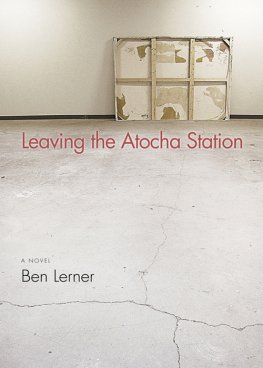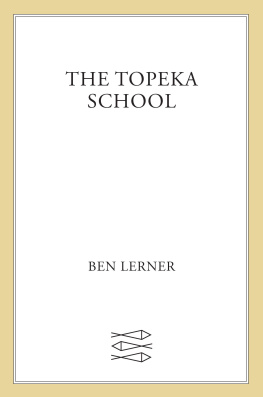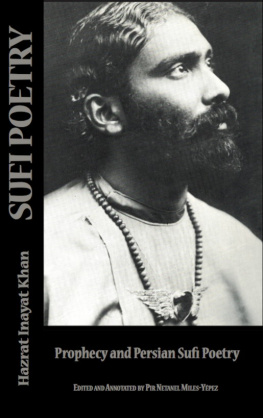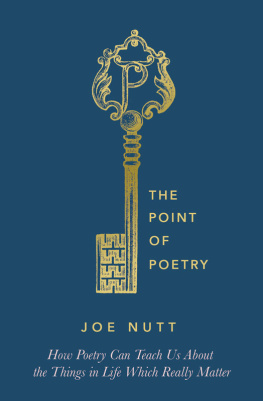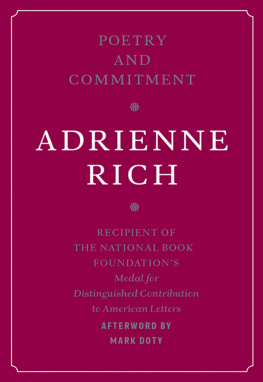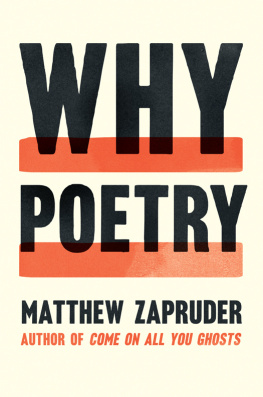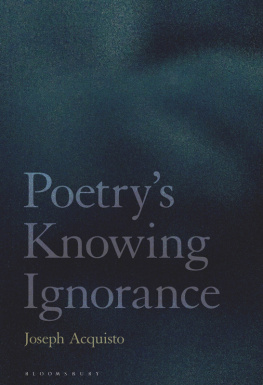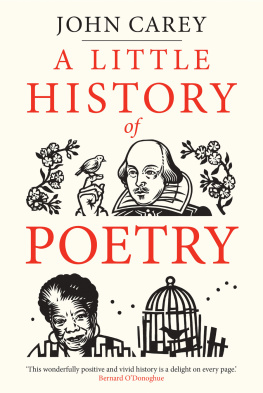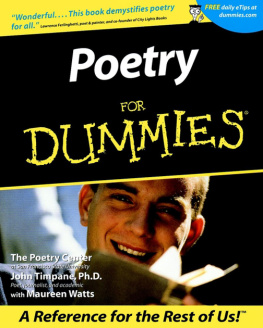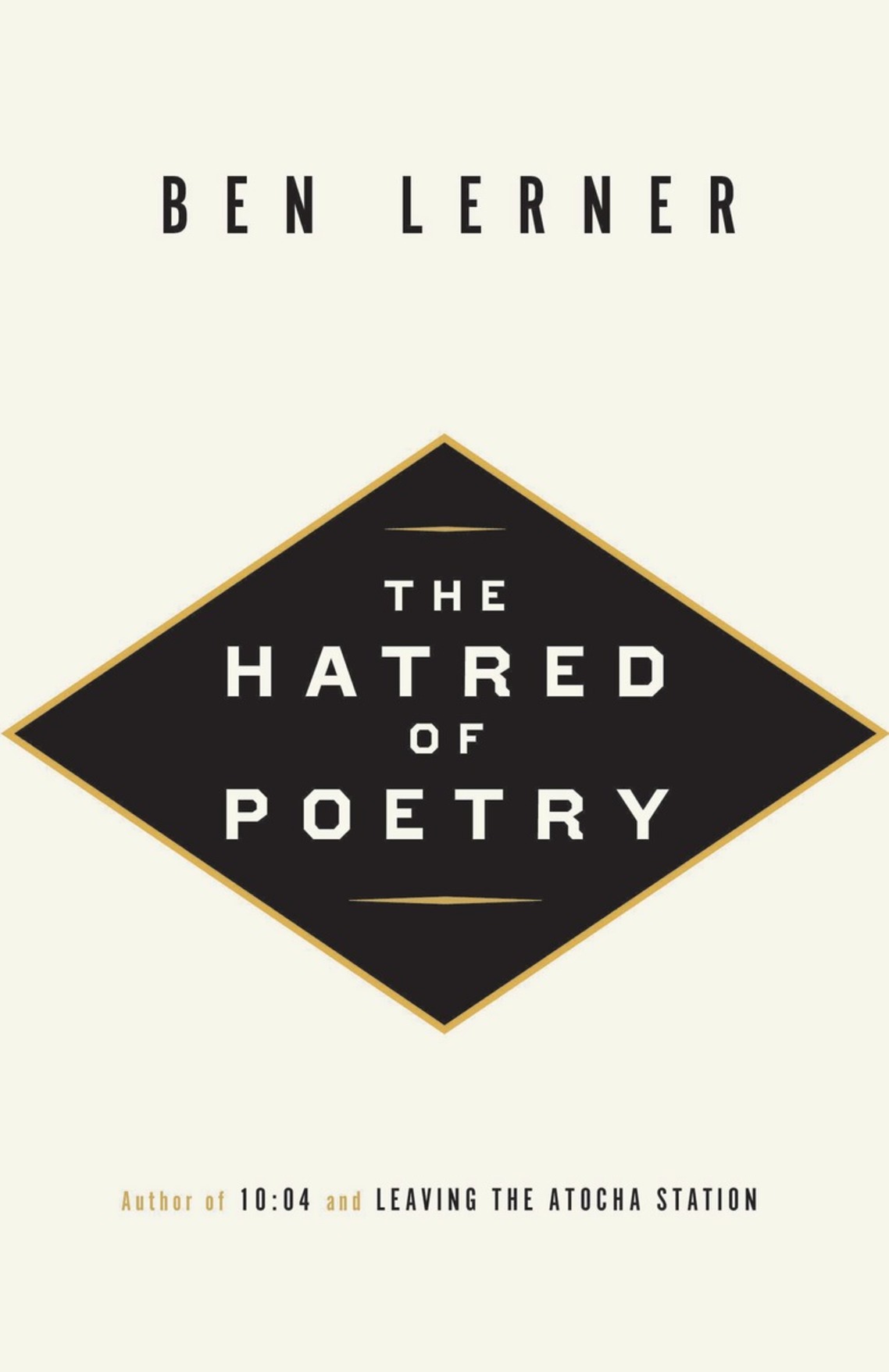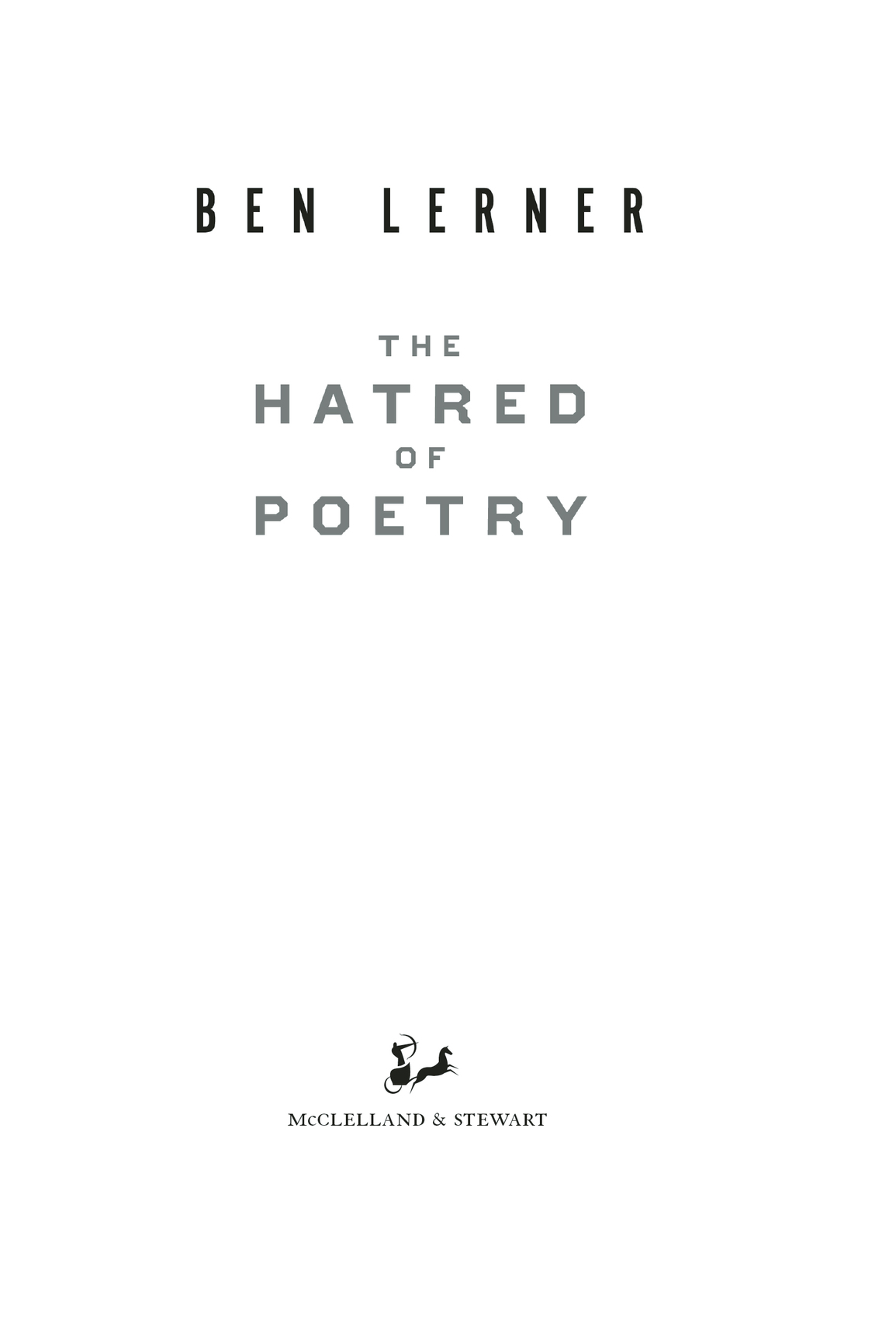Ben Lerner - The Hatred of Poetry
Here you can read online Ben Lerner - The Hatred of Poetry full text of the book (entire story) in english for free. Download pdf and epub, get meaning, cover and reviews about this ebook. year: 2016, publisher: McClelland & Stewart, genre: Art. Description of the work, (preface) as well as reviews are available. Best literature library LitArk.com created for fans of good reading and offers a wide selection of genres:
Romance novel
Science fiction
Adventure
Detective
Science
History
Home and family
Prose
Art
Politics
Computer
Non-fiction
Religion
Business
Children
Humor
Choose a favorite category and find really read worthwhile books. Enjoy immersion in the world of imagination, feel the emotions of the characters or learn something new for yourself, make an fascinating discovery.

- Book:The Hatred of Poetry
- Author:
- Publisher:McClelland & Stewart
- Genre:
- Year:2016
- Rating:3 / 5
- Favourites:Add to favourites
- Your mark:
The Hatred of Poetry: summary, description and annotation
We offer to read an annotation, description, summary or preface (depends on what the author of the book "The Hatred of Poetry" wrote himself). If you haven't found the necessary information about the book — write in the comments, we will try to find it.
Poetry. Perhaps Marianne Moore said it best: I, too, dislike it. What other art takes its marginality as a given, and is so widely bemoaned even by its practitioners? Ben Lerner writes, Many more people agree they hate poetry than can agree what poetry is. I, too, dislike it and have largely organized my life around it and do not experience that as a contradiction because poetry and the hatred of poetry are inextricable in ways it is my purpose to explore.
In this inventive and plain-spoken essay, Lerner takes the hatred of poetry as the starting point of his defence of the art. He examines both poetrys greatest haters (beginning with Plato, who famously claimed that an ideal city had no place for poets, who would only corrupt and mislead the young) and its greatest practitioners, providing inspired close-readings of Keats, Dickinson, Whitman, and...No art has been denounced as often as poetry. Its even bemoaned by poets: I, too, dislike it, wrote Marianne Moore. Many more people agree they hate poetry, Ben Lerner writes, than can agree what poetry is. I, too, dislike it and have largely organized my life around it and do not experience that as a contradiction because poetry and the hatred of poetry are inextricable in ways it is my purpose to explore.In this inventive and lucid essay, Lerner takes the hatred of poetry as the starting point of his defense of the art. He examines poetrys greatest haters (beginning with Platos famous claim that an ideal city had no place for poets, who would only corrupt and mislead the young) and both its greatest and worst practitioners, providing inspired close readings of Keats, Dickinson, McGonagall, Whitman, and others. Throughout, he attempts to explain the noble failure at the heart of every truly great and truly horrible poem: the impulse to launch the experience of an individual into a timeless communal existence. In The Hatred of Poetry, Lerner has crafted an entertaining, personal, and entirely original examination of a vocation no less essential for being impossible.
Ben Lerner: author's other books
Who wrote The Hatred of Poetry? Find out the surname, the name of the author of the book and a list of all author's works by series.

